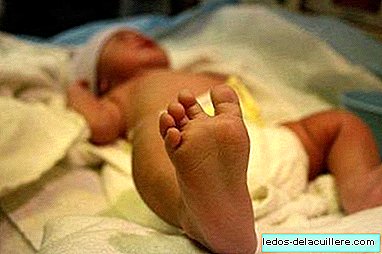
Of every 33 babies born in the world, one has a congenital defect, something that can be largely prevented. The National Birth Defects Prevention Network-NBDPN (United States National Network for the Prevention of Congenital Defects) has declared the month of January of this year as the Month for the Prevention of Congenital Defects.
In Spain, the 1000 Foundation (together with ECEMC), which fully dedicates its efforts to this task, assumes this declaration and, from now on, will celebrate the month of January as the Prevention of Congenital Defects. The NBDPN is a national Network that is dedicated, like the ECEMC, to the investigation and surveillance of embryonic development malformations and other fetal defects.
They intend to inform mothers about their possibility of preventing the risk of having a baby with a birth defect, making some changes in their lifestyle and if they have adequate medical care before and during pregnancy.
This is an important task, because the data of the World Health Organization, and in particular of its Regional Office for Europe, are overwhelming: half a million children are born annually with congenital defects in Europe, with a mortality rate of 2, 5 per 1000 live births, representing at least 25% of infant mortality in Western European countries.
Therefore, it is necessary to develop strategies that aim to reduce these birth defects. Some measures to reduce the risk of the baby being born with a birth defect They are:
- Taking a folic acid supplement is an indispensable help before and during pregnancy, just as it is an adequate supply of iodine. Inadequate intake of these micronutrients is associated with an increased risk of presenting poor obstetric results.
- Eating a healthy diet will help you acquire a good part of the previous nutrients. During pregnancy, the maintenance of adequate nutrition becomes a key factor in maternal and fetal health.
- Do not gain excess weight during pregnancy, which could help keep diabetes controlled.
- Medical controls are important, both before and during pregnancy. We must inform the specialist of any specific condition (high blood pressure, depression, epilepsy ...), the medications we usually use ...
- Alcohol consumption should be zero if you are pregnant or looking for a pregnancy, just like hard drugs and tobacco: smoking in pregnancy is associated with multiple complications.
- We must carefully plan the pregnancy and use contraceptives if we are using medications that can cause birth defects or if you are not sure that they are compatible with the pregnancy.
- If we know our family medical history and that of the couple we can discover if there is a risk of genetic disorders, and in that case consult a professional in genetics.
In short, if the level of health has undergone significant improvements that have resulted in the progressive decline in both maternal and infant mortality in recent decades, there are still other problems and there has been a change in maternal and child health goals.
Today the priority is not in obstetric risks or childhood infections (although they are still very important in developing countries).
At present, in all the countries of our socio-economic environment, the emphasis has been on accidents and the congenital malformations that constitute the first causes of infant morbidity and mortality. We hope that this month of January dedicated to this will make the population more aware of the importance of the subject.











